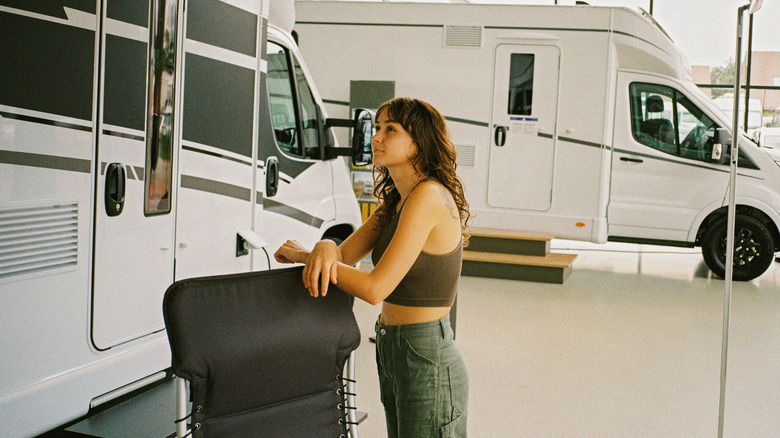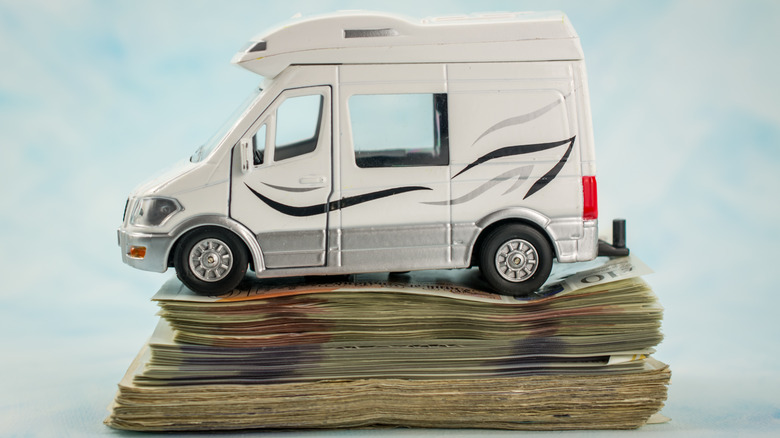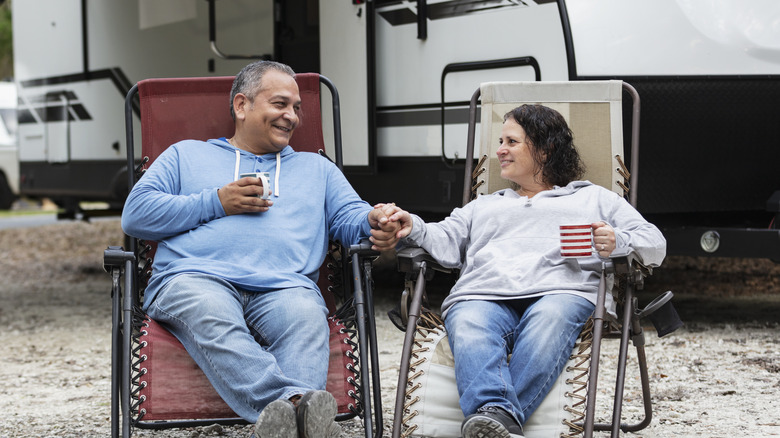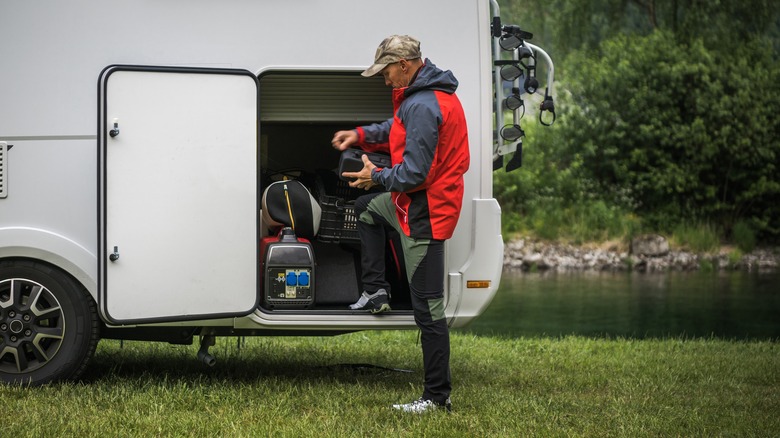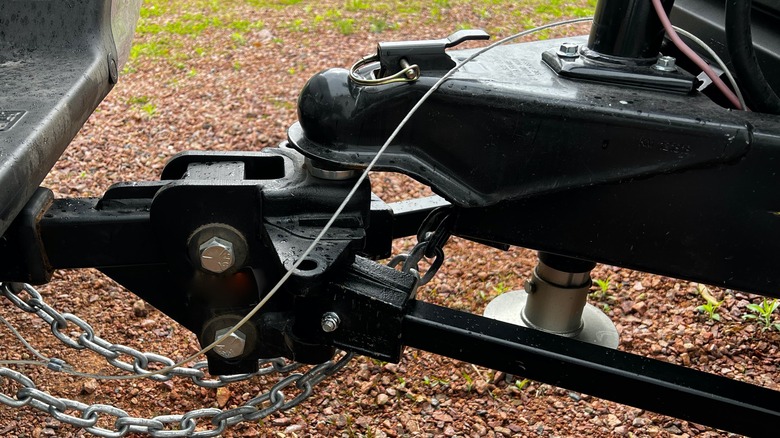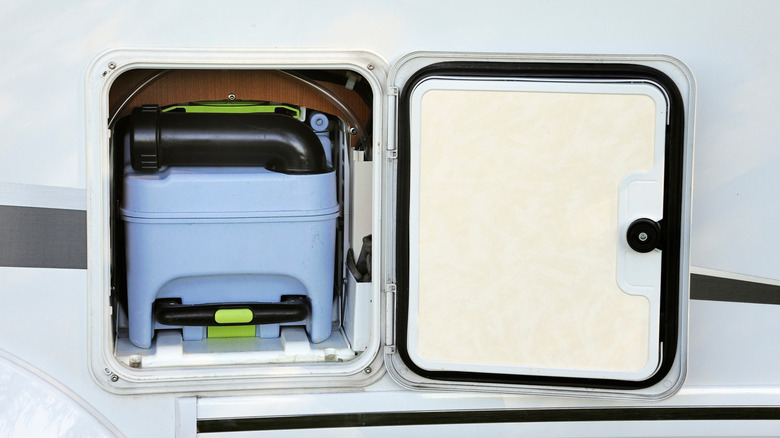Everything You Need To Consider Before Buying A Camper
Embarking on any journey often begins with an influential decision that could make way for all kinds of new adventures and worthwhile experiences. For many people, this choice represents not just a change of scenery or a chance to get away from it all, but it symbolizes a unique transformation in a person's lifestyle, embracing both the comforts of home and the undeniable thrills of the open road. Anyone intrigued by the many routes available to accomplish such an ambitious goal is experiencing a strong desire for freedom and exploration, and as this journey unfolds, there is a good chance it all leads to an important consideration, pivotal for those looking to blend mobility with comfort. For those searching to make this dream a reality, the best way to pull off such an endeavor might be with a camper.
Purchasing a caravan can be an exhilarating yet complex process, and the decision to acquire a recreational vehicle is a perfect combination of practicality mixed with the allure of a nomadic lifestyle, symbolizing a gateway to freedom. As with any significant investment, it carries its own set of variables, each playing a crucial role in shaping the future experiences of would-be travelers. The world of campers is as diverse as the destinations they visit, offering a range of options to suit various needs and desires. So, it is of the utmost importance that interested buyers take into account several things before completing any transactions.
The cost of owning a camper
The financial commitment is a paramount consideration for prospective buyers, as it directly influences their choice and the satisfaction derived from their investment. Recreational vehicles come in a wide array of price ranges, from modestly valued models suitable for the occasional weekend warrior to luxury variants equipped with all the comforts of a modern home, designed for those who seek long-term travel or full-time living on the road. Therefore, making the perfect selection that aligns with one's budget is crucial. A careful assessment of what is being spent makes it so buyers can comfortably afford their new lifestyle without compromising peace of mind or future plans.
Delving deeper into the economic landscape of purchasing a new or used camper reveals a complex picture beyond the initial sticker price. New campers, while offering the latest in amenities and technology, may come with a hefty price tag, not to mention the hidden fees often associated with dealer preparation, delivery, and inspection. Opting for a used camper can offer significant savings but may entail hidden costs in terms of maintenance, fuel efficiency, and the necessity for immediate or future upgrades. All potential expenses, both upfront and ongoing, must be considered to ensure that the chosen camper truly fits within one's situation. Such a comprehensive approach to responsible and informed budgeting helps buyers navigate their way to a decision that allows their investment to continue to pay dividends in joy and satisfaction over the long haul.
Compatibilty with the consumer's lifestyle and needs
The purpose behind purchasing a camper should be a major influence on the decision-making process, guiding potential buyers toward a model that best suits their specific needs. Whether the intention is to embark on long, cross-country voyages, enjoy weekend getaways, or engage in outdoor sports and activities, each case demands different features and amenities.
For instance, those planning to traverse rugged terrains or remote locations might prioritize a camper with enhanced off-road capabilities and robust construction. On the other hand, enthusiasts of leisurely campground stays may prefer comfort and luxury, with spacious living areas and modern conveniences. Individuals dreaming of serene landscapes and the tranquility of nature might gravitate towards options that promise a seamless transition between the indoors and the outdoors. Then, of course, there are those who imagine a life filled with social gatherings and shared experiences that might value recreational vehicles that can facilitate hosting and communal living spaces.
Being able to align the purchase of a camper with one's envisioned lifestyle and the types of excursions planned is crucial for ensuring long-term satisfaction. The decision extends beyond the immediate allure of hitting the open road and actually encompasses the broader vision of how life on the move will look. There are so many things to reflect on when it comes to each possibility that it's of the utmost importance to do a thorough assessment before finalizing any kind of purchase.
Storage and passenger capacity are major selling points
When delving into the market for a camper, one of the critical aspects to ponder is storage capacity. The amount of space available for everything needed in a camper directly impacts the kind of trips that will be taken, as well as the duration. Those planning on having extended journeys or traveling with family or friends need plenty of room for essentials such as clothing, food supplies, and outdoor gear. The difference between a cluttered, cramped environment and a comfortable, enjoyable adventure could very well set the tone for a person's entire experience with their recreational vehicle, which is why it's crucial to properly evaluate all storage options.
Equally important is how many individuals can travel and sleep comfortably within the caravan, which is especially vital for families or groups. A model that perfectly aligns with the size of the traveling party allows for everyone to have adequate, comfortable space while on the road or parked, as well as being able to find a cozy place to sleep, which is essential for restful nights and enjoyable days. While comfort is key, the safety of the occupants is also a matter to take seriously. Not having enough room will lead to overcrowding, which makes the traveling conditions unsafe and diminishes the entire trip. Finding a camper that strikes the right balance between storage and passenger capacity can make for a memorable, stress-free, and, more importantly, smooth ride on the road.
The towing capacity is kind of a big deal
When venturing into camper ownership, understanding the importance of hitch and tow capacity is necessary for ensuring a safe and enjoyable journey. This aspect directly affects the car, truck, or SUV's ability to safely pull the recreational vehicle, especially over long distances or through challenging terrain. The towing capacity of an automobile specifies the maximum weight it can handle, which must be carefully matched with the chosen model's weight to avoid any kind of strain, especially on the engine, transmission, and brakes. An incompatible pairing can lead not only to decreased efficiency and increased fuel consumption, but also to potentially dangerous situations on the road. Therefore, buyers should evaluate the towing capacity of their current or prospective ride against the weight of the camper they intend to purchase.
Another equally important aspect when picking out a caravan is the sway bar and stabilizer system, which play a pivotal role in ensuring the towing setup's safety and stability. These elaborate devices mitigate the lateral movement caused by wind, passing vehicles, or uneven road surfaces, which can lead to dangerous swaying of the camper. This is especially critical in maintaining control during high-speed travel on highways or in adverse weather conditions. Investing in a camper with a robust sway bar and stabilizer system or upgrading a current setup can significantly improve the towing vehicle's handling and response.
For buyers, prioritizing these features not only safeguards their investment but also protects the well-being of all passengers, making it an essential factor to consider for anyone looking to embark on road-bound adventures with their camper.
Tank size really does matter
When navigating the purchase of a camper, the size of its tanks, encompassing fresh water, propane, and wastewater, emerges as a critical factor that demands consideration. The reason they are so vital and need to be looked at very carefully during the buying process is that these capacities directly influence the self-sufficiency and convenience of the camping experience, especially during extended trips or stays in remote locations where access to resources might be limited. A larger freshwater tank means more days off the grid without the need for a refill, enhancing comfort and flexibility. Propane storage is essential for cooking and heating, so if people are looking to extend the seasons in which the recreational vehicle can be comfortably used, it helps to have a good understanding of how much the model being looked at can hold. The capacity of the wastewater tank also plays a pivotal role in determining how long one can stay in a single location without needing to find disposal facilities.
Of all the things people need to keep track of, assessing the tank sizes relative to anticipated travel habits and preferences must be a high priority when selecting a camper that will make every outing, no matter how grand or small, as comfortable and convenient as possible.
